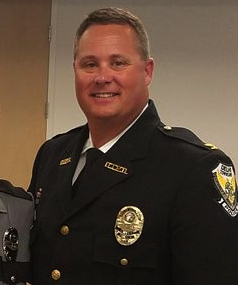Agency Spotlight
Chief Anthony Holloway Calls tip411 “essential to modern policing”
Chief Anthony Holloway of the St. Petersburg, Florida Police Department is someone who has been a great partner with tip411, using the system as the head of three different departments. Read below the letter below that Chief Holloway shared with… Read More »Chief Anthony Holloway Calls tip411 “essential to modern policing”
Interview with Delhi Township: Part III
tip411 interviewed Chief Jim Howarth of the Delhi Township Police Department in Cincinnati, Ohio. This is the third and final part of our conversation. PART III Q: What have you done to promote your tip411 system to make sure residents know about… Read More »Interview with Delhi Township: Part III
Interview with Delhi Township: Part II
tip411 interviewed Chief Jim Howarth of the Delhi Township Police Department in Cincinnati, Ohio. This is part two of our three-part conversation. PART II Q: How has the tip411 system aided your department? A: tip411 has been well received by both… Read More »Interview with Delhi Township: Part II
Interview with Delhi Township: Part I
tip411 interviewed Chief Jim Howarth of the Delhi Township Police Department in Cincinnati, Ohio. This is part one of our three-part conversation. PART I Q: Tell us about your community and the Delhi Township Police Department (how many residents, how… Read More »Interview with Delhi Township: Part I
